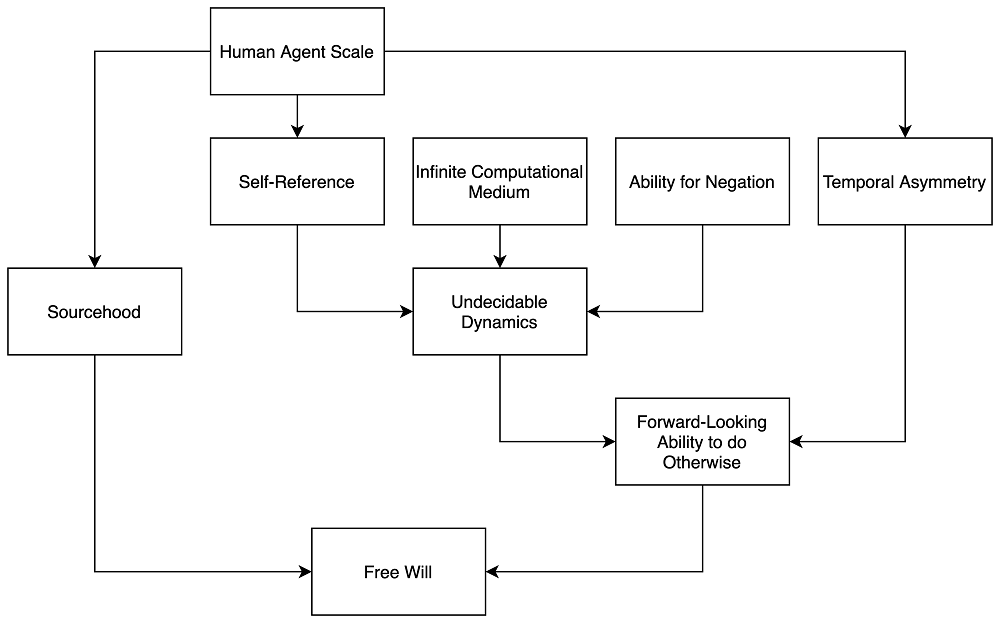One of the central criteria for free will is “Could I have done otherwise?” But because of a temporal asymmetry in human choice, the question makes no sense. The question is backward-looking, while human choices are forward-looking. At the time when any choice is actually made, there is as of yet no action to do otherwise. Expectation is the only thing to contradict (do other than). So the ability to do something not expected by the ultimate expecter, Laplace’s demon, is a better criterion for free will. If human action is fundamentally unpredictable, then we have free will. Scientists have studied a form of fundamental unpredictability, known as undecidability. The features that make a system capable of undecidable dynamics have been identified: program-data duality; potential to access an infinite computational medium; and the ability to implement negation. Humans have all three of these features, so we very likely are fundamentally unpredictable, so we have free will.

